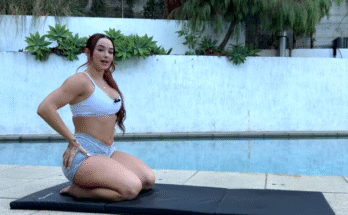
Flexibility is a word that often gets confined to yoga mats, gym routines, or classroom timetables. We grow up hearing it in the context of stretching our bodies or adjusting our academic schedules to meet deadlines. But there’s another kind of flexibility—one that doesn’t get taught in class, doesn’t come with a certificate, and certainly isn’t measured by how far you can touch your toes. This kind of flexibility is a life skill. It’s the mental, emotional, and situational agility that determines how well we handle change, uncertainty, and the ever-shifting nature of reality.
Adaptability Over Rigidity
Imagine this: You’ve studied hard for a job in a specific field—maybe engineering or law—but suddenly, the industry changes. AI reshapes job descriptions. The company you work for downsizes. What do you do? Traditional education teaches expertise, but rarely how to pivot. The kind of flexibility you need here is the ability to reinvent yourself—to embrace lifelong learning and adapt your skill set to something new.
This kind of mental flexibility is what allows people to shift careers in their 30s, 40s, or 50s without falling apart. It’s the mindset that says, “I don’t have to be what I planned when I was 20.” It’s recognizing that identity isn’t fixed, and that’s okay. This isn’t taught in any textbook.

Emotional Flexibility: Bending Without Breaking
One of the most underrated forms of flexibility is emotional. Life is full of moments that test our ability to remain calm, empathetic, and open-minded. It’s easy to stay composed when everything is going well. But what about when someone criticizes you unfairly? Or when a friend betrays your trust? Or when your expectations are completely overturned?
In school, we’re taught to solve problems with clear right or wrong answers. But life is murkier. Emotional flexibility is being able to say, “I didn’t expect this, but I’ll find a way through it.” It’s not letting anger, disappointment, or sadness control your next steps. It’s pausing, breathing, and choosing to respond rather than react. This ability doesn’t come from lectures—it comes from living, failing, and learning.
Social Flexibility: Meeting People Where They Are
In school, we often learn how to collaborate within familiar groups—people who think like us, talk like us, and often share our background. But in real life, you’ll meet people from wildly different walks of life. Some will challenge your beliefs. Others may not understand your way of thinking at all. Can you still connect?
Social flexibility means adapting your communication style without changing who you are. It’s being able to listen to someone’s opinion, even if you disagree, and find a middle ground. It’s learning that being “right” is sometimes less important than being kind, understanding, or cooperative.
This kind of flexibility helps in marriages, friendships, workplace dynamics, and parenting. The ability to shift perspective, to walk a few steps in someone else’s shoes, is a human skill that textbooks barely touch.

Time Flexibility: Letting Go of Rigid Timelines
We’re often told that by 25 we should have a degree, by 30 a house, by 35 kids, and by 40 a solid career. These timelines create pressure and disappointment when life doesn’t go as planned. But real life is rarely linear.
Time flexibility means allowing your life to unfold on your own schedule. It means not comparing your journey to someone else’s highlight reel. Maybe you went back to school at 35. Maybe you became a parent at 45. Maybe you haven’t figured it all out yet—and that’s okay.
This kind of flexibility brings peace and resilience. You begin to understand that life is not a race, but a journey filled with detours, surprises, and second chances.
Creative Flexibility: Rewriting the Rules
Sometimes, the greatest breakthroughs come not from following a formula, but from breaking one. Creative flexibility is the courage to question norms, challenge traditional paths, and make something entirely new from the fragments of old systems.
Think of artists who turned trash into sculptures, entrepreneurs who built businesses from side hustles, or writers who created genres that never existed before. They didn’t follow a syllabus. They trusted their instincts, experimented, failed, and tried again. Creative flexibility is what turns limitations into innovation.
This kind of flexibility isn’t graded in school, but it’s what fuels every great invention and movement.

Resilience: The Ultimate Flexibility
Above all, true flexibility is about resilience. Life will throw unexpected changes at you: breakups, job loss, illness, or grief. The ability to bend without breaking is what helps you survive and grow.
Resilience is knowing that even if life doesn’t look how you imagined, you still have value. You still have options. You still have time.
You won’t find this lesson written on a whiteboard. It’s learned through nights of self-doubt, days of perseverance, and moments of clarity when you least expect them.
Teaching What’s Not Taught
So, if this kind of flexibility isn’t taught in class, where do we learn it?
We learn it from mentors who lead with grace. From parents who never give up. From strangers who show kindness. From friends who offer honesty. And from our own moments of failure, heartbreak, and triumph.
We learn it by getting out of our comfort zones—traveling, reading, volunteering, starting something new. We learn it by saying “yes” when it’s scary and “no” when it’s necessary.
And perhaps, more importantly, we learn it by reflecting. Taking time to ask: What did I learn from that challenge? How did I grow? What can I do differently next time?

Conclusion
“The kind of flexibility they don’t teach in class” is the ability to adapt, to stay grounded during chaos, to shift your mindset, and to grow beyond the limits set by others—or even by yourself. It’s the kind of flexibility that builds a meaningful life, one full of change, purpose, and personal power.
If we truly want to prepare ourselves—and future generations—for the real world, we need to value and nurture this kind of flexibility just as much as academic achievement. Because at the end of the day, it’s not about how well you follow the syllabus, but how well you navigate the unscripted chapters of your life.



